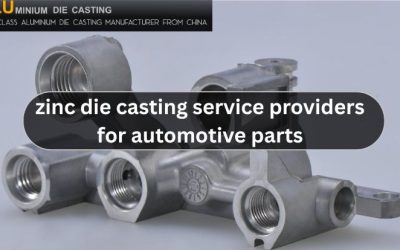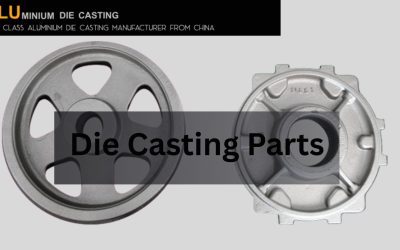의료 산업은 정확성, 안전성, 신뢰성 측면에서 가장 까다로운 산업 중 하나입니다. 의료 장비에 사용되는 모든 재료는 환자에게 최고 수준의 치료를 보장할 수 있도록 최고의 품질이어야 합니다. 이 분야에서는 의료기기의 다이캐스팅을 포함한 수많은 제조 공정이 존재하기 때문에 다이캐스팅은 중요한 기술이 되었습니다. 다이캐스팅은 용융된 금속을 캐비티에 붓는 방식으로 이루어집니다. 고압에서 곰팡이의료 기기에 필수적인 정확하고 강력하며 복잡한 구성 요소를 형성합니다.
의료 장비, 의료 기기 및 내부 부품은 열악한 환경, 멸균 및 장기간 사용에도 고장 없이 견딜 수 있는 하우징, 인클로저 및 내부 부품이 필요한 경우가 많습니다. 다이캐스팅은 이를 충족할 수 있고 품질이 안정적이며 정밀도가 높은 부품을 대량으로 생산할 수 있습니다. 특히 가벼운 무게, 부식에 대한 저항성, 유연성 등으로 인해 의료 분야에서 알루미늄의 사용이 증가하고 있습니다.
의료 산업에서의 다이캐스팅
다이캐스팅 기술은 최근의 기술은 아니지만, 지난 수십 년 동안 의료 분야에서의 사용은 기하급수적으로 증가했습니다. 이 공정은 전통적으로 자동차 및 항공우주 산업에서 사용되어 왔지만, 의료 장비 제조 분야에서도 확고한 입지를 다지고 있습니다. 다이캐스팅은 의료 모니터링 장비, 진단 장비, 수술 장비, 보호 인클로저 등 부품 설계에 높은 정밀도와 반복성이 요구되는 분야에서 더 일반적으로 사용됩니다.
다이캐스팅 의료 장비의 첫 번째이자 가장 큰 장점은 높은 수준의 공차와 세부 치수로 부품을 생산할 수 있다는 점입니다. 의료 기술에서는 작고 컴팩트한 부품이 일반적이며, 성능 손실 없이 더 큰 시스템에 장착할 수 있어야 합니다. 다이캐스팅은 기계 가공이나 플라스틱 성형과 같은 다른 제조 공정과 달리 강도, 비용 효율성, 확장성이 이상적으로 조합되어 있습니다.
금속 인클로저의 수요 증가
현대 의료 장비는 점점 더 개선되고 있습니다. 인공호흡기, 수액 펌프, 영상 촬영기, 모니터링 시스템에는 견고한 보호 인클로저가 필요합니다. 이러한 하우징은 전자 장비를 고정할 뿐만 아니라 민감한 습기, 열, 전자기 간섭으로부터 장비를 보호합니다. 그렇기 때문에 의료 기기의 알루미늄 다이캐스트 인클로저가 편리한 솔루션으로 고려되고 있습니다. 알루미늄은 독성이 없고 재활용이 가능하며 의료 환경에서 중요한 특징인 반복적인 멸균 주기를 거칠 수 있습니다.
디지털 의료, 모바일 기기, 스마트 모니터링 시스템에 대한 수요가 증가함에 따라 견고한 인클로저 제조에 대한 필요성도 커졌습니다. 병원과 클리닉에서 필요로 하는 기기는 가볍고 이동성이 좋아야 하지만 내구성을 희생해서는 안 됩니다. 알루미늄 다이캐스팅은 견고하고 휴대성이 뛰어난 옵션을 제공합니다.
현대 의료 기기에서 알루미늄의 역할
알루미늄은 가볍고 부식에 강하며 열 전도성이 뛰어나고 비용 효율적이라는 뛰어난 특성으로 인해 전통적으로 다양한 산업 분야에서 그 가치를 인정받아 왔습니다. 이러한 특성은 의료 분야에서 신뢰성, 안전성, 효율성으로 이어집니다. 알루미늄은 다이캐스팅과 함께 제조업체가 의료 환경의 까다로운 요구 사항을 견딜 수 있는 인클로저, 하우징 및 부품을 생산하는 데 도움이 됩니다. 그렇기 때문에 의료 기기의 알루미늄 다이캐스트 인클로저 사용이 설계자와 엔지니어 사이에서 빠르게 인기를 얻고 있습니다.
의료 현장에서 사용되는 장비는 정밀하게 작동할 수 있어야 할 뿐만 아니라 멸균, 소독제 접촉 및 일반적인 사용에도 견딜 수 있어야 합니다. 알루미늄은 고온에서 분해되거나 변형될 수 있는 플라스틱과 달리 구조를 유지합니다. 또한 강철과 같은 무거운 금속에 비해 알루미늄은 오늘날 휴대용 의료 장비의 중요한 구성 요소인 이동성이라는 이점을 제공합니다.
다이캐스팅이 알루미늄에 이상적인 이유는?
다이캐스팅 공정은 복잡한 형상의 부품과 우수한 마감 처리가 가능하다는 점에서 알루미늄의 자연스러운 장점을 지원합니다. 나사 보스, 슬롯, 차폐 공간 등 다양한 기능이 내장된 소형 인클로저는 의료 기기 제조업체에서 흔히 볼 수 있습니다. 이러한 복잡한 디자인을 기계 가공으로 제작하려면 비용과 시간이 많이 소요되며 플라스틱 성형은 필요한 내구성이 부족할 수 있습니다.
다이캐스팅은 공정이 고압으로 진행되기 때문에 결함을 최소화하면서 일정한 벽 두께를 만들어내는데, 의료 장비의 경우 약간의 불규칙성만 있어도 기기가 완전히 고장날 수 있기 때문에 이러한 요소가 중요합니다. 따라서 의료 기기의 다이캐스팅은 반복성과 정밀성이 요구되는 분야에서 표준으로 자리 잡았습니다.
의료용 다이캐스팅에서 알루미늄의 주요 이점
내식성
의료 장비의 멸균은 증기, 화학 물질, 자외선 조사에 노출되는 경우가 많습니다. 알루미늄에 의해 자연적으로 형성된 산화물 보호층에 의한 부식에 저항하는 능력은 인클로저와 하우징의 수명을 늘려줍니다.
가벼운 무게와 휴대성
의료 기술이 핸드헬드 및 모바일 기기로 전환됨에 따라 무게 감소는 매우 중요합니다. 다이캐스트 부품은 매우 튼튼하면서도 가볍기 때문에 휴대용 진단 기기 및 웨어러블 장비에 적합합니다.
열 및 전기 전도성
대부분의 의료 장비는 열을 발생시키거나 민감한 부품이 있습니다. 알루미늄의 열 전도성은 열을 잘 제거하며, 다이캐스팅을 수정하여 전자파 간섭을 방지하는 차폐 기능을 추가할 수 있습니다.
규모에 따른 비용 효율성
다이캐스팅은 금형 개발 후 단위당 상당히 저렴한 비용으로 알루미늄 부품을 대량 생산할 수 있습니다. 특히 전 세계에서 사용되는 기기에 표준화된 부품이 대량으로 필요한 헬스케어 분야에서 유리합니다.
고급 인클로저로의 전환
헬스케어 기술의 크기가 점점 작아지면서 인클로저는 단순한 보호 쉘이 아니라 이제 기기의 성능에 적극적으로 관여하고 있습니다. 방열판, EMI 차폐 및 통합 고정 지점을 단일 주조로 알루미늄 하우징에 통합하도록 설계할 수 있습니다. 이를 통해 수많은 부품의 사용을 줄이고 조립을 단순화할 수 있습니다.
이제 인공호흡기, 제세동기, 환자 모니터, 영상 장치에 알루미늄 다이캐스트 인클로저를 사용하는 의료 장비가 늘어나는 것은 당연한 일입니다. 또한 다른 소재로는 거의 얻을 수 없는 안전성, 내구성 및 제조 가능성을 제공합니다.
의료 기기에서 다이캐스팅의 응용 분야
의료 장비에 다이캐스팅이 도입되면서 의료 산업에서 다이캐스팅의 활용 가능성은 무한대로 열렸습니다. 다이캐스팅의 유연성 덕분에 엔지니어는 부품의 기능적 구조를 넘어 미적 요소까지 고려할 수 있게 되었습니다. 가장 일반적인 용도는 다음과 같습니다:
보호 인클로저
인클로저는 진단 스캐너부터 휴대용 모니터링 시스템까지 민감한 전자기기를 보호하는 데 필요하며, 의료 기기의 알루미늄 다이캐스트 인클로저를 포함하여 열악한 병원 환경에서 신뢰성을 보장하는 장비의 민감한 전자기기를 보호하는 데 사용됩니다.
수술 기구 및 도구 하우징
핸드헬드 수술 장비 및 하우징은 다음과 같이 제작됩니다. 다이캐스트 알루미늄 부품 가볍지만 내구성이 뛰어난 제품입니다. 타지 않고 멸균 주기를 견딜 수 있어 수술실 장비로 사용하기에 가장 적합합니다.
의료 기기, 영상 및 진단 장비
MRI, CT, 초음파 기계에는 전자기 차폐가 되는 정밀 부품이 필요합니다. 다이캐스트 알루미늄 부품은 민감한 전자 장치를 고정할 때 간섭을 방지하는 역할을 합니다.
웨어러블 및 휴대용 의료 기기
의료 서비스가 모바일 방식으로 전환됨에 따라 인슐린 펌프와 환자 모니터와 같은 기기는 경량 인클로저에 의존하고 있습니다. 다이캐스팅은 환자가 편안하게 사용할 수 있는 소형 디자인을 쉽게 만들 수 있습니다.
의료 기술에서 다이캐스팅의 장점
의료 장비의 다이캐스팅 사용 증가는 몇 가지 필수적인 이점에 의해 주도되고 있습니다:
- 정확성: 다이캐스팅은 복잡하고 반복 가능한 디자인을 제조하는 데 사용할 수 있어 기계적 고장의 위험을 최소화합니다.
- 내구성 및 안전성: 알루미늄 인클로저는 내구성과 저항력이 뛰어나 인명 구조 장비에서 매우 중요한 요소인 긴 사용 수명을 제공합니다.
- 대량 생산: 금형을 개발하면 수천 개의 동일한 부품을 매우 효율적으로 제작할 수 있으므로 대규모로 의료 서비스를 배포하는 데 드는 비용을 절감할 수 있습니다.
- 디자인 유연성: 엔지니어는 복잡한 어셈블리를 만들거나 취약한 부분을 만들지 않고도 하나의 캐스팅에 다양한 기능을 추가할 수 있습니다.
- 살균에 대한 내성: 알루미늄은 열화되기 쉬운 폴리머와 달리 고온 오토클레이브 및 화학 세제와 호환됩니다.
이러한 장점으로 인해 의료 기기의 알루미늄 다이캐스트 인클로저는 현재 의료 기기 제조에서 대체할 수 없는 부분이 되었습니다.
의료용 다이 캐스팅의 도전 과제
다이캐스팅은 많은 장점을 가지고 있지만 의료 산업에서 몇 가지 문제도 있습니다:
높은 초기 툴링 비용
다이캐스팅 금형은 개발 비용이 많이 듭니다. 대규모로 제작할 경우 비용 효율적이지만, 생산량이 적은 소규모 의료 기기 제조업체에게는 장애물이 될 수 있습니다.
엄격한 규제 기준
사용 가능한 의료 장비는 엄격한 안전 및 품질 기준을 충족해야 합니다. 다이캐스트 부품을 FDA, ISO, CE 인증을 받으려면 생산 공정이 복잡해집니다.
표면 마감 요구 사항
의료 장비는 일반적으로 오염을 방지하기 위해 다공성이 없는 자유 유동 표면이 필요합니다. 폴리싱, 코팅 또는 아노다이징과 같은 일부 주조 후 단계가 필요할 수 있습니다.
설계 제한 사항
다이캐스팅을 사용하더라도 복잡한 형상을 구현할 수 있지만, 매우 얇은 벽이나 극단적인 언더컷은 구조적 무결성을 잃지 않고는 구현하기 어려울 수 있습니다.
재료 선택
가장 널리 사용되는 알루미늄은 일부 의료용 애플리케이션에서 강도나 전도성을 개선하기 위해 필요한 특수 합금으로 대체할 수 있지만 가격이 더 비쌀 수 있습니다.
가중치 장단점
마지막으로, 의료 분야에서 다이캐스팅의 인기는 그 장점이 도전 과제를 능가한다는 것을 보여줍니다. 설계와 규모의 경제를 극대화함으로써 제조업체는 고품질 제품을 생산하는 데 그치지 않고 그 이상을 달성할 수 있습니다. 더 중요한 것은 의료 기기의 알루미늄 다이캐스트 인클로저를 통합함으로써 병원, 클리닉 및 환자가 내구성, 효율성 및 안전성을 모두 갖춘 장비를 제공받을 수 있다는 것입니다.
의료 분야에서 다이캐스팅의 미래 전망
디지털화, 원격 의료 및 맞춤형 의료 건강 서비스를 통한 의료 분야의 발전으로 의료 장비의 다이캐스팅 직업은 더욱 확대될 것입니다. 더 작고 신뢰할 수 있으며 가벼운 장치를 제조해야 한다는 압박으로 인해 제조업체는 새로운 야금, 더 스마트한 설계, 더 효율적인 제조 방법을 모색해야 하는 과제를 계속 안게 될 것입니다.
이러한 트렌드 중 스마트 의료 기기의 통합은 떠오르는 트렌드 중 하나입니다. 이러한 기기는 센서, 무선 통신 네트워크, 충전식 배터리로 구성되는 경우가 많습니다. 이러한 민감한 전자기기는 열 부하를 처리하고 전자기 간섭 및 물리적 스트레스를 방지할 수 있는 견고한 하우징으로 안전하게 보호해야 합니다. 알루미늄 다이캐스팅은 견고하고 유연한 디자인으로 이러한 요구를 충족하는 유일한 소재입니다.
또한 지속 가능성에 대한 중요성이 강조되고 있습니다. 알루미늄은 기계적 특성을 잃지 않고 100% 재활용할 수 있는 금속으로, 친환경 생산이라는 글로벌 트렌드에 부합합니다. 그렇기 때문에 이 제품뿐만 아니라 의료 기기의 알루미늄 다이캐스트 인클로저도 기술적이면서도 지속 가능한 솔루션입니다. 제조업체와 병원 모두 환경에 미치는 영향을 줄이는 데 있어 친환경 소재의 유용성을 높이 평가하고 있습니다.
발전을 주도하는 기술 혁신
앞으로 몇 가지 혁신으로 인해 의학 분야에서 다이캐스팅의 유용성이 더욱 높아질 것입니다:
- 고성능 합금: 특히 의료용 임플란트에 사용되는 고강도, 높은 전도성, 높은 생체 적합성을 가진 합금을 만들기 위해 새로운 알루미늄 합금이 연구되고 있습니다.
- 적층 기술별 툴링: 3D 프린팅은 복잡한 다이캐스팅 금형을 더 빠르고 저렴한 비용으로 제작하는 데도 도입되고 있어 초기 툴링 투자의 장애물을 극복하는 데 도움이 됩니다.
- 표면 엔지니어링: 미래의 다이캐스트 의료 부품은 항균 표면이나 기타 특수 마감재로 코팅하여 안전성과 위생을 더욱 강화할 수 있습니다.
- 소형화: 의료 기술은 점점 더 소형화되고 있으며, 다이 캐스팅 공정은 더 얇은 다이 벽, 더 작은 인클로저 및 더 작은 어셈블리를 수용하도록 개발될 것입니다.
이러한 역학 관계를 종합적으로 고려할 때 의료 기기 다이캐스팅 적용은 의료 기기 생산의 한 축을 담당하게 될 것입니다.
GC 정밀 금형이 글로벌 고객들이 선호하는 파트너인 이유는?
또한 의료, 자동차 및 산업 분야의 다양한 고객에게 서비스를 제공하는 것에 자부심을 가지고 있습니다. 혁신적인 스타트업과 이미 성장한 다국적 조직이 정밀도, 품질 및 신뢰성 측면에서 최고를 얻을 수 있다는 것을 알고 우리를 고객으로 삼고 있습니다. 하이테크 다이캐스팅 솔루션과 맞춤형 금형 설계를 통해 고객이 더 빠르게 제품을 개발하고 경쟁 우위를 확보할 수 있도록 지원합니다. 모든 프로젝트는 당사의 기술 및 고객 중심 경험이 장기적으로 성공을 보장하는 파트너십으로 접근합니다. 품질과 일관성에 대한 기록을 보유한 GC 정밀 금형은 세계적으로 유명한 결과와 비용 효율적인 조치를 추구하는 고객이 선택한 회사입니다.
결론
엔지니어링 및 의료 분야는 발전의 원천이 되어 왔으며 다이캐스팅도 예외는 아닙니다. 다이캐스팅은 정확하고 내구성이 뛰어나며 비용 효율적인 부품을 제조할 수 있는 신뢰할 수 있는 방법을 제공함으로써 생명을 구하고 삶을 향상시키는 장치를 제조할 수 있게 해줍니다.
특히 알루미늄이 각광받는 소재가 되었습니다. 가벼운 무게, 강도, 내식성, 열 전도성 덕분에 현재 의료 분야의 요구 사항을 충족하는 데 이상적입니다. 의료 장비의 알루미늄 다이캐스트 인클로저 사용이 증가함에 따라 민감한 기술을 보호하고 휴대성을 지원하며 높은 요구 사항을 준수하는 업계에서 내구성이 뛰어난 하우징의 필요성이 강조되고 있습니다.
높은 툴링 가격과 엄격한 규정과 같은 문제가 존재하지만, 이러한 문제를 해결하기 위한 지속적인 혁신이 이루어지고 있습니다. 의료 분야에서 다이캐스팅의 한계를 뛰어넘기 위해 제조업체는 고급 합금, 적층 제조, 향상된 표면 마감 처리로 눈을 돌리고 있습니다.
진단, 치료 및 환자 모니터링의 미래는 향후 몇 년 동안 의료 기기 다이캐스팅의 역할이 증가하면서 형성될 것입니다. 다이캐스팅은 단순한 제조 방식이 아니라 정밀 엔지니어링과 의료 혁신을 통합하여 4세대 의료 기술의 기반이 됩니다. 다이캐스팅은 앞으로도 계속될 것입니다.
자주 묻는 질문
GC Precise Mold는 어떤 산업에 서비스를 제공하나요?
당사는 의료 기기, 자동차, 전자, 산업 장비 등 다양한 분야의 정밀 다이캐스팅 및 금형 공급업체입니다.
왜 GC 정밀 금형에 가야 하나요?
저희는 최신 기술, 고품질 표준, 다년간의 경험을 통합하여 고품질의 합리적인 솔루션을 제공하는 회사입니다. 정확성, 지속 가능성, 개별 고객의 니즈에 관심을 기울이고 있습니다.
GC 정밀 금형은 의료 장비에 맞춤형 다이캐스트 인클로저를 제공할 수 있습니까?
예. 엄격한 의학 인증을 받았으며 내구성이 뛰어나고 안전하며 국제 표준을 준수하는 맞춤형 주조 알루미늄 인클로저를 설계 및 생산합니다.
GC 정밀 금형은 소규모 또는 대규모 생산을 허용합니까?
물론이죠. 당사는 프로젝트 요구 사항에 따라 프로토타입, 소량 생산 또는 대규모 생산에 맞게 조정하고 생산할 수 있는 회사입니다.













0개의 댓글